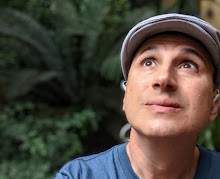When Your Partner is an Ex-Gay Survivor
Over at Beyond Ex-Gay co-founder Christine Bakke and I receive many e-mails from ex-gay survivors sharing their stories, thanking us for the site and offering their suggestions for new features to add. We also routinely receive messages from people who never attended an ex-gay program or tried to change and suppress their sexual orientation or gender presentation, but they have become painfully aware of the harm of ex-gay experiences because their partner attempted a change process.Last week I heard from Jayne, a lesbian in the Mid-West who wrote to us looking for answers regarding her relationship with Rachel, a woman who attended an ex-gay program previous to dating Jayne. As I mention in my article, Emotionally Dependent Relationships, many of these ex-gay programs trained us to distrust close emotional ties with people of the same-sex thus insulating us from intimacy and hindering healthy relating even years after the ex-gay experiences. The process of living in the closet in a hostile world didn't help either.
Jayne graciously took up my invitation to write about her relationship with Rachel in hopes that others in similar situations will find comfort and support in their shared experiences. I also hope that a dialog will begin among partners of ex-gay survivors just as it has begun among the straight spouses of former ex-gays.
Jayne writes,
Loving Rachel is not hard to do at all. She is the most beautiful and generous person I have ever known, and I believe that our paths have brought us to this moment in time for a reason. In my opinion, that reason is to help her face the anguish and pain from her ex-gay experience and move forward as a healthy lesbian woman who can still have a close and loving relationship with God as well as nurture our connection to one another as two women.You can read all of Jayne's article here.
snip
Her ex-gay experience has caused some difficult struggles for me and added some incredibly tough stress on our relationship. Some days are better than others, but the main struggle I have is how to be a supportive partner for her as I listen to her experiences, of which I have an immediate physical reaction to, but don’t voice that reaction because I don’t want her to feel judged or misunderstood. She has been through a very tough ordeal with the program she attended and continues to struggle with “right” or “wrong.” How do I give her the space she needs as well as prove to her that I’m committed to her and am not going to abandon her?
Labels: ex-gay, ex-gay survivor, gay, lesbian, spouse


0 Comments:
Post a Comment
Subscribe to Post Comments [Atom]
<< Home